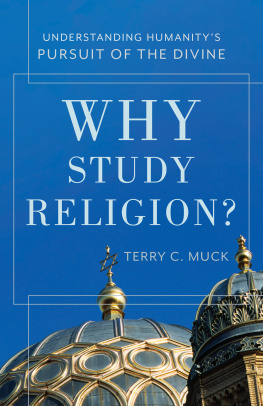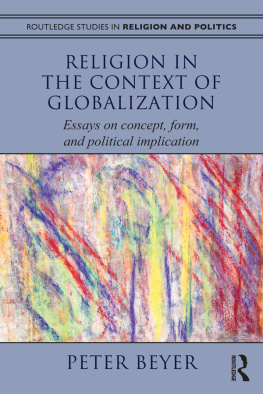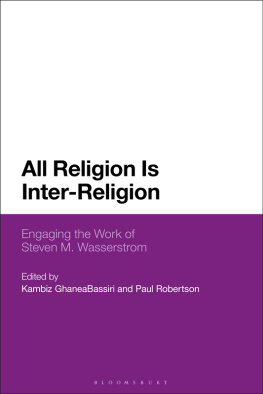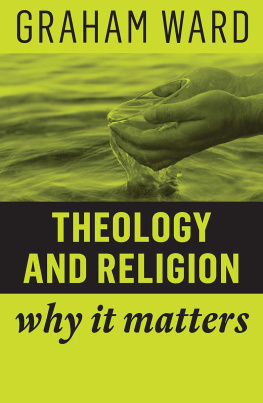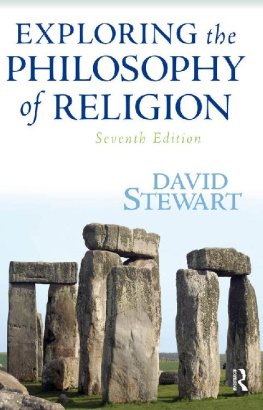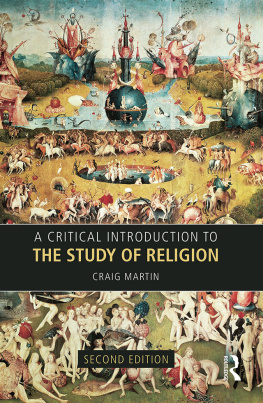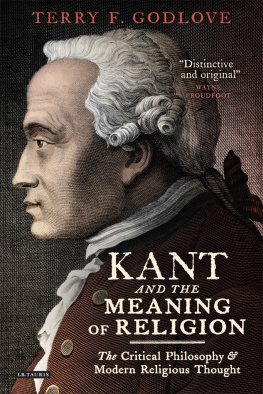Preface
Why study religion? Because religion is important. While the type and the quality of the religion being practiced certainly influence the rise and fall of explicitly spiritual concerns, both politics and economics are also affected by religious currents. No matter what part of the world we are talking about, no matter what specific religion is under discussion, rest assured that religion is an indispensable part of what is going on. Why is the study of religion important? Because religion helps us to understand the world better. Consequently, this book argues for the importance of studying religion.
Who is this book written for? For students and scholars of religion, especially those living in Western cultures. For those just starting out in their quest to understand religion. For students taking their first course in religionsuch as an Introduction to World Religion course, which is regularly offered in colleges, universities, and theological schools. The pages that follow show new students and nascent scholars why it is important to study religion and how to go about this important task.
This book might also serve as a refresher for advanced students who have already taken a few courses in religious studies or for those who have decided to choose religious studies as a vocation. Senior scholars already teaching religious studies to others may even find the book useful. All three of these groupsadvanced students, students in doctoral programs in religion, and senior scholarsobviously know more than just a little about the religions of the world and the people who adhere to them. For these readers, this book is a way to step back and see what they know and what they have yet to learn.
The words student and scholar are connected to each other. In certain situations, they can be used as terms of progression; at some point, a student who studies and learns becomes a scholar who researches and teaches. In this book, I prefer to see student and scholar as synonyms rather than terms of position or rank. Better yet, they can be modifiers of each other: student-scholars and scholar-students. Scholars never stop studying and learning. Students, even very new ones, do research. Whats more, students teach; those of us who have taught religious studies are forever learning from those in our classes. A student can be a scholar, and a scholar is forever a student.
Why did I write this book? I love religious studies. Last year I retired after teaching religious studies for a quarter of a century. My little corner of the religious studies vineyard was teaching theological students to understand religions other than Christianity. I specialized in Buddhism, especially Theravada Buddhism and Buddhist-Christian interactions. I taught courses at Austin Presbyterian Theological Seminary, Asbury Theological Seminary, and Louisville Presbyterian Theological Seminarymany courses, hundreds of studentsand I experienced a great deal of enjoyment and satisfaction doing so. I hope that a sense of that enjoyment and satisfaction comes through on the pages that follow.
To whom am I grateful? To my colleagues at Austin Seminary, Asbury Seminary, and Louisville Seminary. To my students at those schools. To interlocutors and friends in the Society for Buddhist Christian Studies. To religious studies scholars long past and present, who have taught me through both word and deed. And to Frances. I am blessed.
Terry Muck
Wood Hill, August 2015
Introduction
If this book is to adequately answer the question of its title, Why Study Religion? , it is essential to begin with a simple and clear statement of what religion is. Unfortunately, there is nothing simple or clear about defining religion. The definition of religion and/or a religion is a contentious topic. For the purposes of this book, however, religion is defined as a set of human practices that provides for its adherents answers to four questions:
What is the ideal state of life?
What has gone wrong?
What can put things right?
How should we then live?
This kind of definition (which I will refer to as the Four-Question Definition) is useful when one is trying to describe the boundaries and purposes of human behavior operating in the religious mode. What do I mean by religious mode? When humans ask and answer ultimate questions having to do with both the real and perceived shortcomings of life and the eradication of those shortcomings, they are being religious. They are in religious mode. The story related to these questions and answersthe beliefs that story engenders and the everyday virtues the story encouragesis a persons religion.
This kind of definition helps us to identify what both groups and individuals consider their religion to be.

